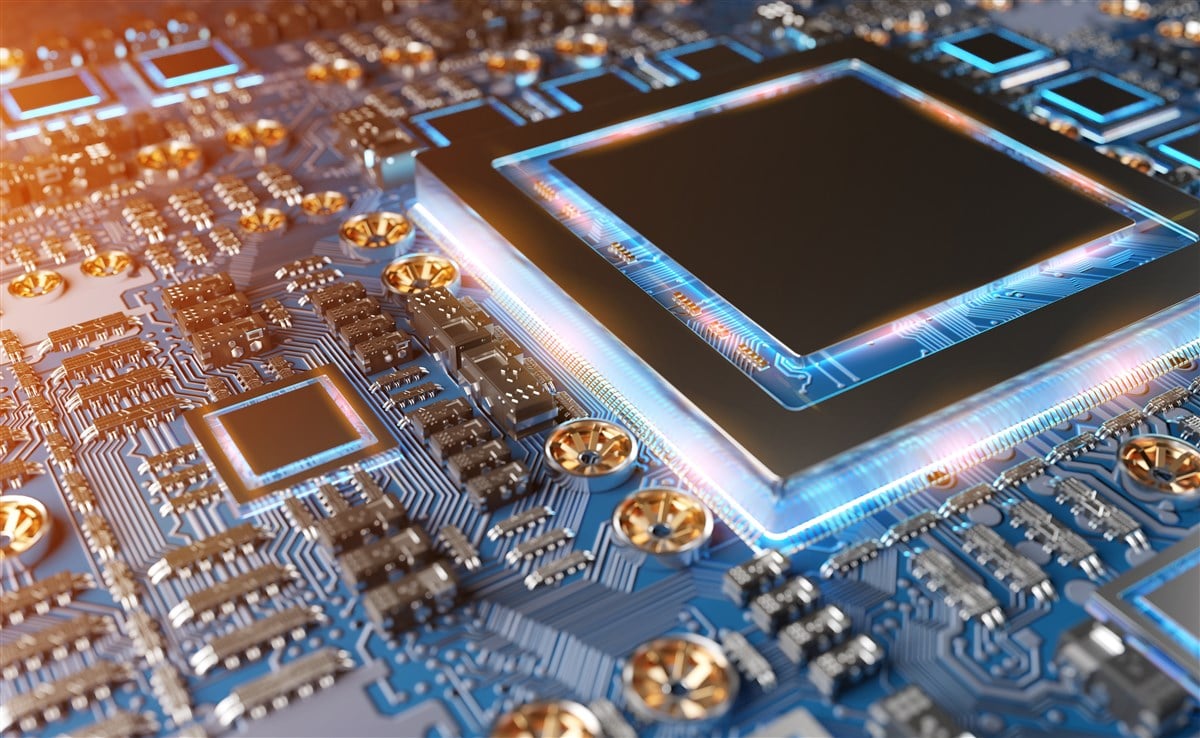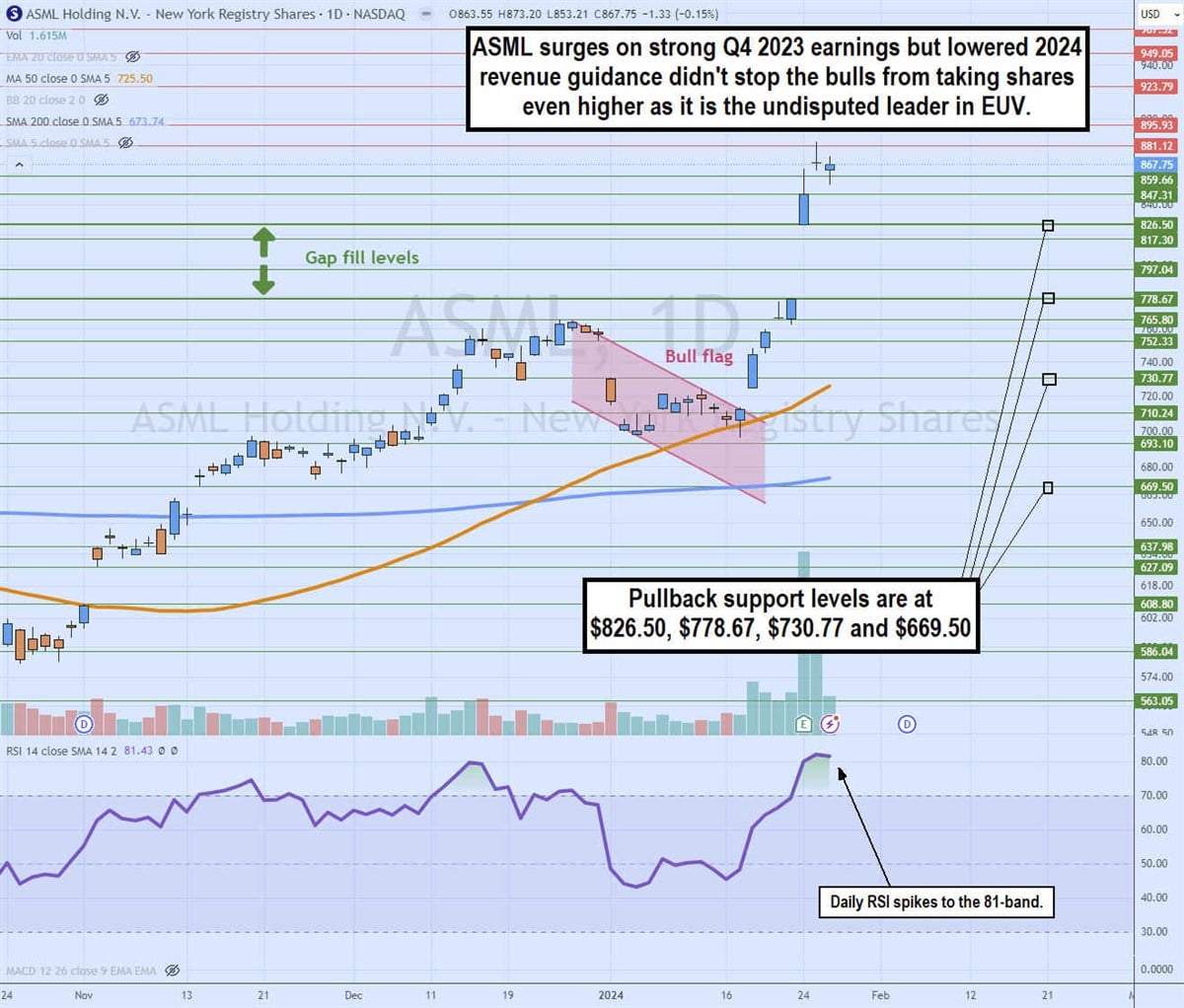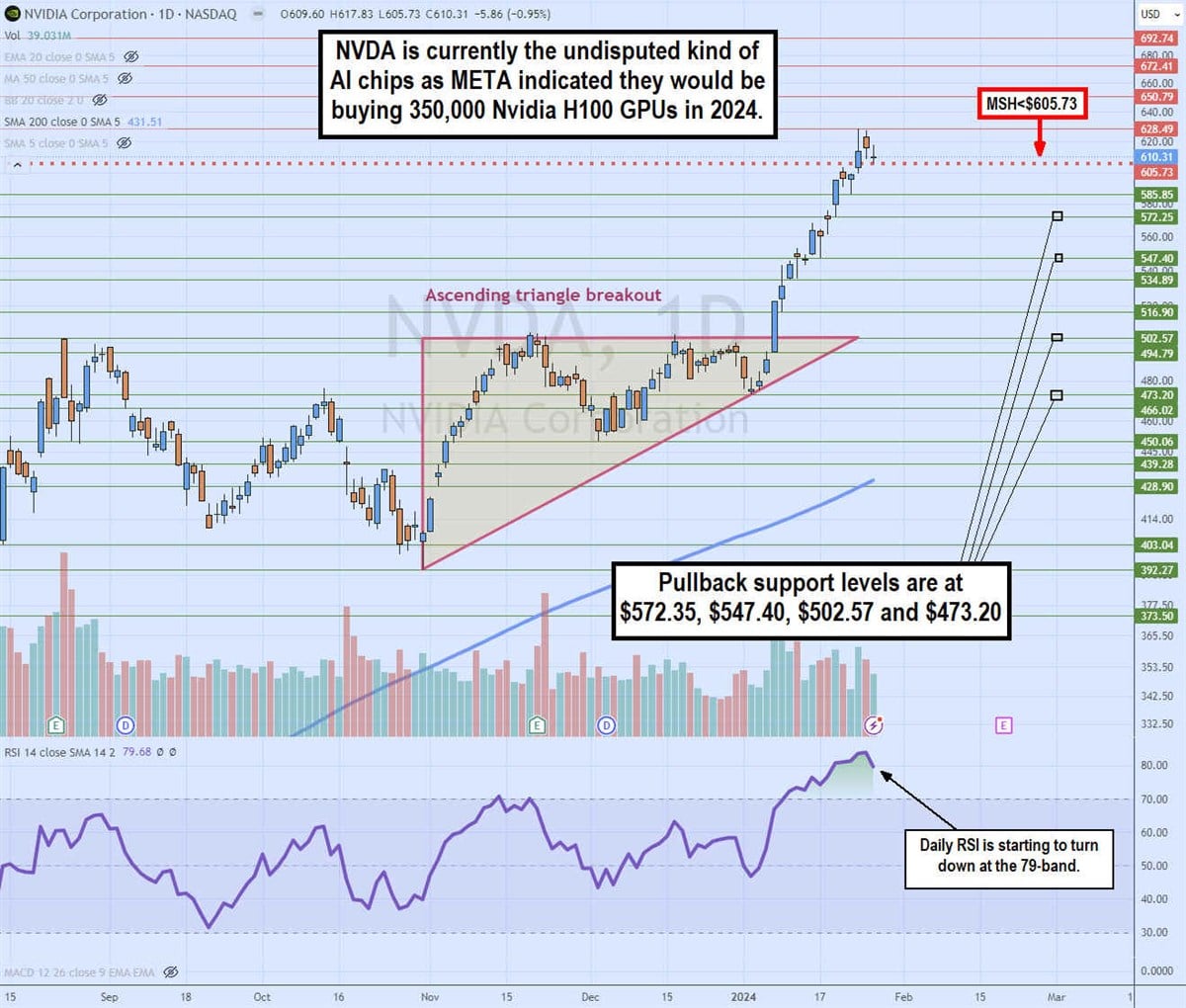2 undisputed chip leaders that each owns a 90% market share 
Commanding 80% or more market share in any industry segment is a worthy feat, especially on a global scale in the computer and technology sector. They say the lion on top of the mountain is not as hungry as the lion climbing the mountain, and it only has room to fall. This may be true, but some companies have an inherent edge due to their wide moat or from being the first to market. Whether they can maintain their hold is anyone's guess, especially when it comes to technology. Here are two companies considered "undisputed" leaders in their segment of the semiconductor industry, each owning a 90% market share. ASML Holding ASML Holding N.V. (NASDAQ: ASML) is the undisputed leader in lithography systems. They don't make semiconductors but create the machines that make them. ASML's semiconductor equipment enables other companies like Taiwan Semiconductor Manufacturing Co. Ltd. (NYSE: TSM) and Intel Co. (NASDAQ: INTC) to manufacture computer chips. To print billions of circuits onto a tiny silicon wafer requires using lasers with lithography equipment. Methods of lithography There are many methods like photolithography to pattern circuits onto wafers, electron beam lithography (EBL) using expensive beams of electrons to write circuits onto the wafers, and extreme ultraviolet (EUV) lithography. EUV lithography uses shorter wavelength EUV light to create billions of precise circuits on a wafer, making it the preferred method in terms of time and cost. ASML has a monopoly on EUV lithography. Weapon of mass defection ASML's moat is so large that they are estimated to own closer to 90% market share. The demand for smaller and more powerful chips is insatiable, especially with the advent of artificial intelligence (AI) applications. ASML is considered such an impactful player in terms of national security that the Dutch government has prohibited it from selling its machines to China at the behest of the United States. $400 million and over 200 tons Its EUV lithography systems cost range from $150 million to $400 million and weigh over 200 tons, which can be transported in 13 large shipping containers and 250 crates. EUV systems can take 24 to 36 months to receive after placing the order. This doesn't even factor in the installation, customization and maintenance costs. ASML's latest generation EXE systems will support high-volume chip manufacturing from 2025 to 2026 to enable geometric chip scaling with advanced nodes starting at 2 nanometers (nm) nodes. Current NXE systems print 7 nm, 5 nm and 3 nm nodes. Check out the sector heatmap on MarketBeat. Beams away On January 24, 2024, ASML reported a fourth-quarter 2023 EPS of $5.66, beating analyst expectations by 46 cents. Revenues climbed 12.6% YoY to $7.88 billion, beating analyst estimates by $372.82 million. Gross margins were 51.4%. Net bookings were $9.97 billion, of which $6.07 billion were EUV systems. The full-year 2023 net sales were $29.94 billion, with a gross margin of 51.3% and a net income of $8.46 billion. Downside guidance? So what? ASML provided lower Q1 2024 revenue guidance of $5.423 billion to $5.965 billion versus $6.790 billion. Gross margins are expected to be between $48% and 49%. Full-year 2024 revenue guidance was lowered to flat at $29.893 billion versus $31.97 billion consensus analyst estimates. Incidentally, ASML stock rose higher even after lowering its guidance. It pays to be the undisputed leader. ASML CEO Peter Wennink commented, "The semiconductor industry continues to work through the bottom of the cycle. Although our customers are still not certain about the shape of the semiconductor market recovery this year, there are some positive signs. Industry end-market inventory levels continue to improve, and litho tool utilization levels are beginning to show improvement. Our strong order intake in the fourth quarter clearly supports future demand." ASML Holding analyst ratings and price targets are at MarketBeat. ASML Holding peers and competitor stocks can be found with the MarketBeat stock screener. 
Daily bull flag breakout The daily candlestick chart on ASML illustrates the formation of a bull flag breakout pattern triggered after the daily Golden Cross breakout as the daily 50-period moving average (MA) crossed up through the daily 200-period MA, now trading at $725.50 and 673.74, respectively. The daily relative strength index (RSI) surged to the overbought 81-band. Pullback support levels are at $826.50, $778.67, $730.88 and $669.50. Nvidia The AI trend has pushed shares of Nvidia Co. (NASDAQ: NVDA) to new all-time highs in 2024, rising 23% year-to-date (YTD). Nvidia is the undisputed leader and king of the hill in AI chips, with a 90% market share for now. Their H100 GPUs sell for $25,000 to $30,000 a piece, with some fetching upwards of $40,000 in secondary markets. The king for how long? However, many players are gunning for a piece of the pie, including Advanced Micro Devices Inc. (NASDAQ: AMD), Alphabet Inc. (NASDAQ: GOOGL), Google Tensor Processing Units (TPUs), and Intel Co. (NASDAQ: INTC). The high demand for Nvidia's AI chips has them experiencing backorders, especially when giants like Meta Platforms Inc. (NASDAQ: META) indicate their computing infrastructure will include 350,000 Nvidia H100 GPUs and almost 600,000 H100 equivalent in computing power by the end of the year. Meta also indicated an interest in using AMD's new Instinct MI300X AI chips. Top and bottom line beats Nvidia reported Q3 2023 earnings of $4.02, beating analyst estimates by 65 cents. Revenues surged a mind-boggling 205.5% YoY to $18.12 billion, crushing consensus analyst estimates for $16.19 billion. Nvidia raised its forecasts for Q4 2023 revenues to come in around $19.6 billion to $20.4 billion versus $17.96 billion analyst estimates. GAAP margins are expected to be 74.5%, and non-GAAP margins are expected to be 75.5%. Nvidia's Q4 2023 earnings are expected to be released on February 21, 2024, after the market close. CEO Jenson Huang summed it up, "Large language model startups, consumer internet companies and global cloud service providers were the first movers, and the next waves are starting to build. Nations and regional CSPs are investing in AI clouds to serve local demand, enterprise software companies are adding AI copilots and assistants to their platforms, and enterprises are creating custom AI to automate the world's largest industries. NVIDIA GPUs, CPUs, networking, AI foundry services and NVIDIA AI Enterprise software are all growth engines in full throttle. The era of generative AI is taking off." Nvidia analyst ratings and price targets are at MarketBeat. 
Daily symmetrical triangle breakout The daily candlestick chart on NVDA illustrates an ascending triangle breakout through the $502.57 upper trendline resistance on January 8, 2024. NVDA rose to a new high of $628.49 on January 24, 2024. A daily market structure high (MSH) sells trigger formed at $605.73. The daily RSI indicates a peak as it starts to turn down to the 79-band. Pullback support levels are at $572.35, $547.40, $502.57 and $473.20. Written by Jea Yu Read this article online › Featured Stories: |
Tidak ada komentar:
Posting Komentar